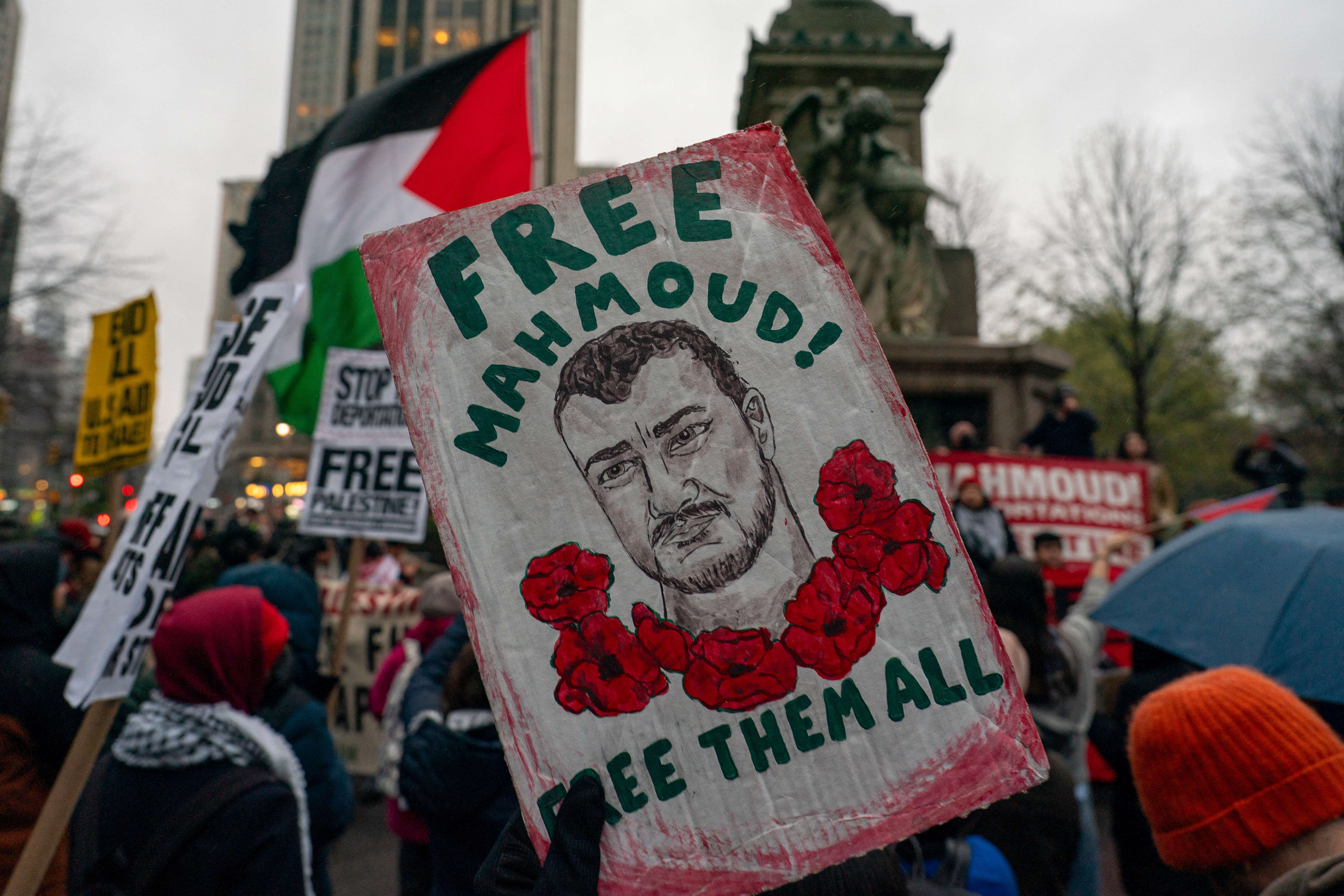US government cited inaccurate tabloid accounts in its case against Mahmoud Khalil documents show

The US government used inaccurate information published in tabloid newspapers in its case against Palestinian activist and Columbia University graduate student Mahmoud Khalil, a review of more than one hundred pages of court documents submitted by the Trump administration has found.
ABC News and NBC News reported that the government used articles published in tabloids like The New York Post and The Washington Free Beacon and newspapers such as The Times of India to argue in its case against Khalil that he should be deported because he lied on his green card application.
Among the claims cited in the Trump administration's case against Khalil is that he was a "member of Unrwa", the United Nations Palestinian refugee aid agency that the US has suspended all funding for the past year.
That claim stemmed from articles in The New York Post and the Times of India, both of which linked Unrwa to the 7 October 2023 Hamas-led attacks on southern Israel, when they cited Khalil as a former "political affairs officer" for the organisation from June 2023 to November 2023.
According to the court documents, Khalil's lawyers submitted a screenshot from his Linkedin account listing him as an intern for Unrwa, not a paid employee. They also provided a copy of a letter sent by Unrwa to Columbia University stating that Khalil was selected for an internship and a letter from the institution stating that he received three academic credits for the internship.
New MEE newsletter: Jerusalem Dispatch
Sign up to get the latest insights and analysis on Israel-Palestine, alongside Turkey Unpacked and other MEE newsletters
"Unrwa does not have in its Human Resources the job title of ‘Political Affairs Officer,'" a spokesperson for the organisation told NBC News.
There's also the claim that Khalil "failed to disclose" in his green card application that he was a "member" of Columbia University Apartheid Divest (Cuad), which was a prominent voice in pro-Palestine protests at Columbia.
The New York Post referred to Cuad as "radical", and The Washington Free Beacon referred to it as "antisemitic". Both alleged that Cuad sympathised with terrorist groups.
Khalil's lawyer, Marc Van Der Hout, told ABC News that Cuad is a collection of campus groups with "no individual membership".
News articles that correctly depicted Khalil as being a key negotiator between student protesters and university administrators only began to appear in April 2024, his lawyers said, while his green card application was submitted on 29 March.
"The allegation would be completely meritless even if all of the government's evidence were not from a month after Mahmoud submitted his application," Van Der Hout told ABC News.
NBC News said that in other instances, the government's claims are "clearly erroneous", as "the timelines don't match".
In March 2024 Khalil filed his green card application, where his work history shows he was a programme manager in the Syria office of the British embassy in Beirut from June 2018 to December 2022.
The US government has insisted that he failed to list his work for the embassy "beyond 2022", and submitted a copy of an online profile of Khalil from the Society for International Development’s conference scheduled for June 2025, which identifies him as an embassy employee.
When asked to respond, Britain's Commonwealth and Development Office told NBC News that Khalil had not worked for the UK government in more than two years, and his employment ended just before Christmas in 2022.
To that effect, the court documents showed that Khalil's lawyers intend to argue that he left his role in Beirut precisely because he accepted a scholarship at Columbia University, and that his biography for the conference website was erroneous because he last spoke there in 2020.
On Friday, a US immigration judge in Louisiana ruled that the 30-year-old could be removed from the country. The landmark ruling could aid the sweeping crackdown on pro-Palestinian voices in the US who hold visas and permanent residency.
It is important to note, however, that immigration judges operate under the purview of the Department of Justice and are not independent of the executive branch.
Khalil still has a case pending in federal court in New Jersey. His legal team has until 23 April to appeal the deportation decision.
Immigration crackdown
Khalil was a negotiator for pro-Palestinian student protesters in talks with Columbia University's administration during last spring’s Gaza solidarity encampment on campus, opposing Israel’s war on Gaza.
Department of Homeland Security (DHS) agents arrested him outside of his apartment on Columbia University’s campus on 8 March as part of the Trump administration’s crackdown on pro-Palestinian students, as the administration has equated their activism with antisemitism.
The plain clothes agents stated they had revoked Khalil's student visa. When his wife showed the agents that Mahmoud had a green card, not a visa, they said that it had been revoked as well.
Khalil was transferred to an immigration detention centre in central Louisiana without notice from his counsel or his wife, even though his habeas case was pending in New York as he was held in nearby New Jersey.
Khalil is one of several people affiliated with prestigious universities who have been detained by Immigration and Customs Enforcement agents as part of the government's immigration crackdown.
middleeasteye.net